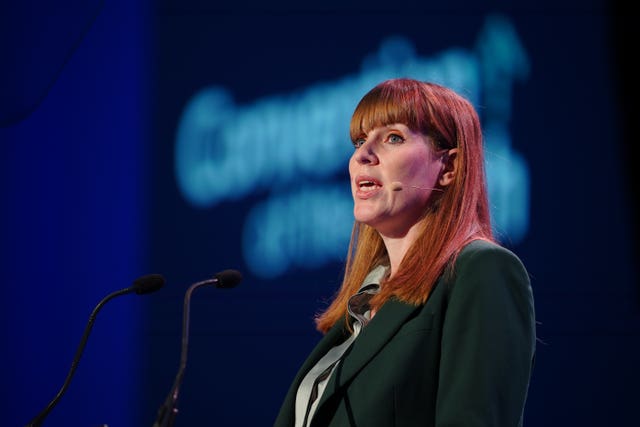Fears of local government financial collapse ‘pessimistic’, says top civil servant
The Local Government Association said councils in England were facing a funding gap of more than £8 billion by 2028/29.

A senior civil servant leading flagship local government reforms has said it is too pessimistic to fear the sector will collapse because of financial pressures.
Sarah Healey, permanent secretary at Ministry of Housing, Communities and Local Government (MHCLG), told MPs that planned changes to the way councils are funded and structured are necessary to “fix the foundations” and enable councils to “succeed in the future”.
During an appearance before the Public Accounts Committee, Ms Healey and other senior civil servants repeatedly defended the Government’s bid to place local authorities on a sustainable footing, amid funding pressures which have seen dozens of councils seek exceptional financial support.
Committee chair Sir Geoffrey Clifton-Brown used an analogy that many councils, as “the nuts and bolts of local government”, were “rusting through (and) about to bust”.
Referencing the Government’s English devolution white paper, which details plans to abolish smaller councils to create large unitary authorities serving a minimum population of 500,000, Mr Clifton-Brown added: “On top of that, you want to build an entirely new building of local government reorganisation with those rusted-through nuts and bolts.”
He added: “My worry is that whole thing is going to collapse. Am I being pessimistic?”
Ms Healey said: “I think so. I’m an optimist … the only way we can ultimately fix the foundations is by making sure that local government is in the right shape to succeed in to the future, and that is why we don’t think there is any element of this reform – from funding distribution through to local government reorganisation – that we can’t try to achieve. We need to achieve it all.”

Will Garton, director general for local government at MHCLG, said there is evidence that reorganisation can reduce costs, citing a report by PwC which identified £2.9 billion in savings over five years.
He added: “We just need that money. We don’t have a choice. We have got to do both because the situation is so serious.”
But Nico Heslop, director of local government finance at MHCLG, said both the Deputy Prime Minister Angela Rayner and local government minister Jim McMahon had been “absolutely clear” that the problems “would not get sorted overnight”.
He added: “There will be difficult choices, and I feel that they have already taken difficult choices, and we think it will be better and we think it is the right thing to do.
“But we think it is not going to be without noise or without difficulty and we will need to continue to work very closely with the sector.”
A recent survey by the Local Government Association (LGA) found that nearly three-quarters of responding councils felt it would be very or fairly difficult compared with earlier years to set a balanced budget for 2025/26.
The LGA said councils in England were facing a funding gap of more than £8 billion by 2028/29.
The Government is providing exceptional financial assistance to 30 councils.
Ms Healey added: “We don’t underestimate the complexity and difficulty, and indeed genuinely, the capacity constraints in councils to get all of this done, but we think it needs to be done.”
The Government is consulting on reforms to the way councils are funded from 2026/27.
Changes include a move to multi-year funding settlements, adjustments to the relative needs formula which dictates the distribution of funding, a reset of business rates retention, and fewer funding streams to simplify the system.





